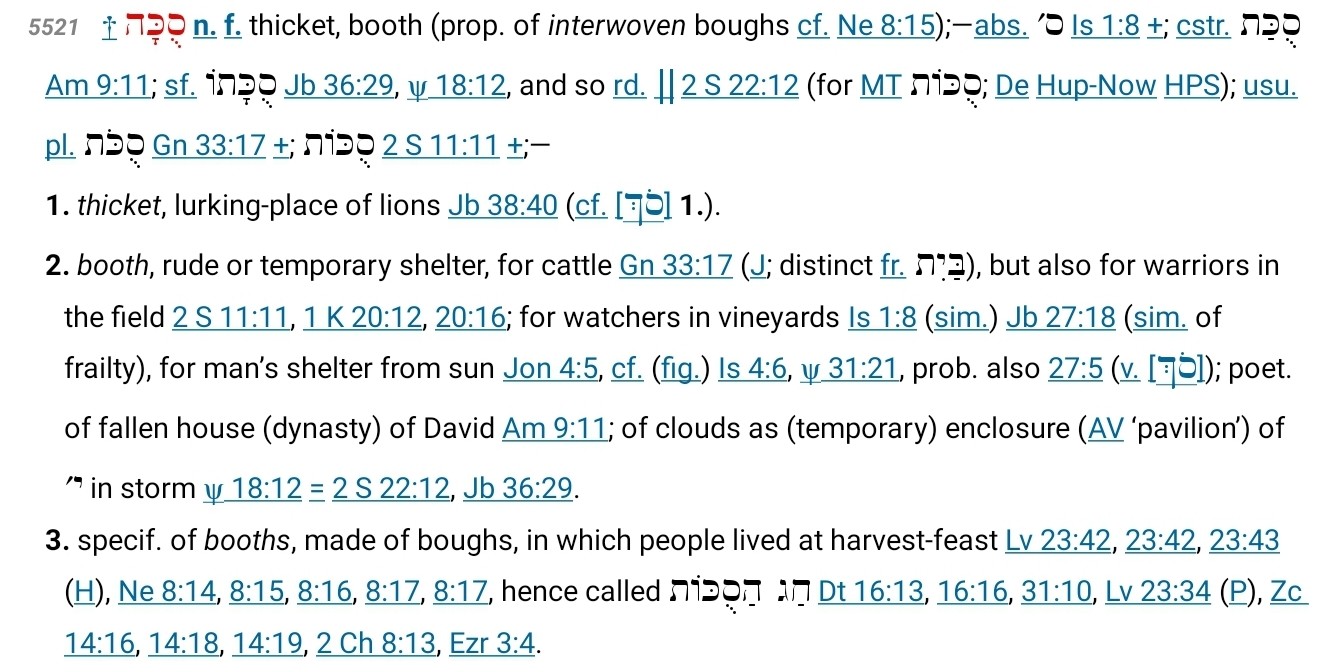Remember that Tabernacles is about many things, not just setting up a temporary booth, which represents this temporary body that we are in, but also that we "are" suppose to be living, breathing, walking tabernacles.
1Co 6:19 What? know ye not that your body is the temple of the Holy Ghost which is in you, which ye have of Elohim, and ye are not your own?
1Co 3:17 If any man defile the temple of Elohim, him shall Elohim destroy; for the temple of Elohim is holy, which temple ye are.
The concept of teaching the stranger (often referred to as the "sojourner" or "foreigner" the ways of Elohim and the observance of the Law is embedded in the Torah. Israel's responsibility towards the stranger is repeatedly emphasized, particularly in the context of loving and treating them fairly. This care was rooted in our fore-fathers own experience as strangers in Egypt.
“Then the survivors from all the nations that have attacked Jerusalem will go up year after year to worship the King, YAH Almighty, and to celebrate the Festival of Tabernacles. If any of the peoples of the earth do not go up to Jerusalem to worship the King, YAH Almighty, they will have no rain. If the Egyptian people do not go up and take part, they will have no rain. YAH will bring on them the plague he inflicts on the nations that do not go up to celebrate the Festival of Tabernacles. This will be the punishment of Egypt and the punishment of all the nations that do not go up to celebrate the Festival of Tabernacles.” (Zechariah 14:16-19, NIV)
In this passage, Zechariah prophesies about a future time when all nations will be required to go to Jerusalem to worship YAH during the Feast of Tabernacles. Those who don't will face consequences, such as no rain or even plagues.
The role of Israel in relation to the nations is woven throughout the Holy Scriptures. For instance, Isaiah 49:6 says:
"It is too small a thing for you to be my servant to restore the tribes of Jacob and bring back those of Israel I have kept. I will also make you a light for the Gentiles, that my salvation may reach to the ends of the earth."
The concept of teaching the stranger (often referred to as the "sojourner" or "foreigner" the ways of Elohim and the observance of the Law is embedded in the Torah. Israel's responsibility towards the stranger is repeatedly emphasized, particularly in the context of loving and treating them fairly. This care was rooted in Israel's own experience as strangers in Egypt.
Remember these scriptures:
Equality Before the Law:
Leviticus 24:22: "You shall have the same law for the stranger and for one from your own country; for I am Yah your Elohim ."
Observance of the Sabbath:
Exodus 20:10: "But the seventh day is the Sabbath of Yah your Elohim . In it you shall do no work: you, nor your son, nor your daughter, nor your male servant, nor your female servant, nor your cattle, nor your stranger who is within your gates."
Observance of the Passover:
Exodus 12:48-49: "And when a stranger dwells with you and wants to keep the Passover to YAH, let all his males be circumcised, and then let him come near and keep it; and he shall be as a native of the land. For no uncircumcised person shall eat it. One law shall be for the native-born and for the stranger who dwells among you."
Justice and Fair Treatment:
Deuteronomy 1:16: "And I charged your judges at that time, saying, 'Hear the cases between your brethren, and judge righteously between a man and his brother or the stranger who is with him.'"
While the above scriptures clearly indicate that the stranger was to adhere to statues, commandments, judgements and laws of Elohim, it's also implied that we Hebrew Israelites had a responsibility to ensure the stranger knew of these requirements. The inclusiveness of the Law regarding both us and strangers suggests that the knowledge of the Law would have been shared with those who chose to align themselves with Israel and our Elohim.
Torah, makes it clear that Elohim's commands and standards apply not only to us but also to the strangers (or sojourners/foreigners) living among us. Here are some references that emphasize the expectation for strangers to adhere to Elohim's commands:
1 John 5:3 (NIV)
"In fact, this is love for Elohim: to keep his commands. And his commands are not burdensome."
Go introduce Elohim to someone this tabernacles, for this is the only feast day that Israel has to invite the gentile nations







